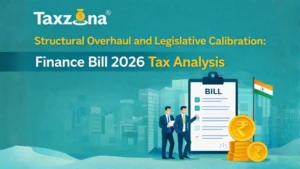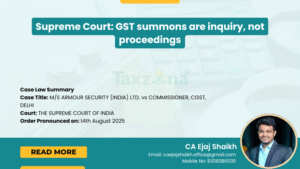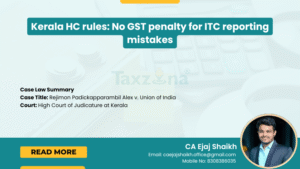Section 80C of Income Tax Act 1961 has been a widely used tax deduction for many individuals, but it does come with some caveats. Here are 8 Deductions Available under Section 80C of Income Tax Act 1961 which guidelines can be followed to claim deductions according to the lay of your land.
LIC Premium Paid
If you are an individual resident in India, you can claim a deduction of the LIC premium paid under Section 80C of the Income Tax Act, 1961. The LIC premium is a mandatory tax paid by individuals with an income above a certain level.
If you are an individual resident in India who pays a LIC premium, you can claim a deduction for it on your income tax return. If you choose to do so, be aware that there are some limits on the amount of the deduction that you can claiming.
Investment in Provident Fund
Under the provisions of section 80C of the Indian Income Tax Act, 1961, an individual can claim a deduction for the investment made in a provident fund. A provident fund is a scheme which is incorporated for the purpose of providing pensions, social security, and other retirement benefits to its members. The particularities of this scheme are that it is registered with the relevant authority and all its transactions are transparent. This provides individuals with peace of mind as they know that their assets are protected in case of any unforeseen event.
Investment in Five Years Fixed Deposit
You can claim deduction of investment in five years fixed deposit under section 80C of Income Tax Act, 1961. The exemption limit for this is Rs 1.5 lacs. Here are the details:
You can claim deduction of Rs 1,50,000 as investment in five years fixed deposit under section 80C of Income Tax Act, 1961. This includes providing information about your monthly average log balance, total deposits made in each of the past five years, and total interest earned during these periods.
Investment in National Saving Certificate
Under Section 80C of the Income Tax Act, 1961 in India, deductions can be made for investments made in National Saving Certificate (NSC). Investments in NSC are categorized into two categories- Public and Private. Public NSCs are those which are invested primarily in the public sector such as general government, provident funds and social security schemes. Private NSCs are those which are invested primarily in the private sector.
Investments in Public NSCs qualify for a deduction if they are held as capital assets. This means that the investment must have a fair market value at the time of acquisition. The deduction is allowed provided that the holding period is more than 1 year and the expenditure on interest, management fees and other charges related to the investment is also deductible.
Investments in Private NSCs do not qualify for a deduction if they are held as capital assets. However, they can be used to generate income and this income can be taxed at ordinary rates.
Investment in Sukanya Samruddhi Yojana
Under Section 80C of Income Tax Act, 1961, there are a number of deductions that are available to individuals for investment in Sukanya Samruddhi Yojana. These deductions include the deduction for section 80C, which is applicable to interest on PRE-BUDGETed funds, and the deduction for section 84D, which is applicable to investments in rural small businesses.
The eligibility criteria for these deductions vary depending on the investment made, but all investments have to be made through an eligible financial institution. These investments have to be made for the purpose of promoting gender equality and women’s empowerment, and they have to be put into effect within three years of the date of formation.
Investment in Sukanya Samruddhi Yojana is a great way to generate income while also supporting women’s empowerment.
Investment in Equity Linked Saving Scheme
Section 80C of the Income Tax Act, 1961 provides for a deduction of investment in equity-linked saving schemes. This section covers such schemes where the premium paid is used to contribute towards the purchase or redemption of shares in the scheme.
The provisions of section 80C of the Income Tax Act, 1961 are explained below.
To be eligible for deduction under this section an individual must have contributed towards the purchase or redemption of shares in a recognised equity-linked saving scheme during the previous year. The shares can be held directly, through a nominee, or through any other legal form.
The amount invested in such a scheme can be claimed as deduction only if it is available to withdraw without penalty and if it is not treated as capital gains in computing taxable income. In other words, you cannot claim deduction for amounts that have already been taxed as capital gains.
An individual may also be eligible for deduction under this section even if he did not actually make any payments towards the purchase or redemption of shares in the scheme.
Investment in Senior Citizen Saving Scheme
Investment in Senior Citizen saving scheme under Income Tax Act, 1961 is eligible for deduction under Section 80C of Income Tax Act. Eligibility depend on two factors- Scheme participation and investment in the scheme. Investment in the scheme should not be less than Rs 25,000/-.
If you are an individual investor who has made an investment in a Senior Citizen savings scheme operated by a financial Institution registered under the provisions of the Companies Act, 2013, your investment is eligible for deduction under Section 80C of Income Tax Act. The following conditions have to be met:-
- You have to have made an ‘investment’ in the scheme i.e., you must have paid money into the scheme as opposed to receiving money back from it. This could either be through regular contributions or through one time lump sum deposits.
- The amount you invest should not be less than Rs 25,000/- per annum.
- Your investment should be for a period of at least 5 years from the date of investment.
- You must be a resident of India at the time you make your investment and your income from the investments should be taxable in India.
5 .60 years of age
Those who have opted for voluntary retirement scheme i.e VRS can opt for it after the age of 55.
Principal Repayment of Home Loan
If you have taken a home loan from a financial institution and then paying the loan amount as EMI, you may be able to claim a deduction for the principal repayment of the loan. This deduction is available under section 80C of the income tax act, 1961.
The interest that you paid on the home loan during the year will also be deductible. The interest must have been paid on time and in full, regardless of whether you actually used the home loan to purchase your residence.
The above mentioned Deductions are some of the deductions available under Section 80C of Income Tax Act, 1961. For more Investment options and Tax Savings options Kindly contact us on +91 98204 44477 or you can also send us mail on taxzona@gmail.com








